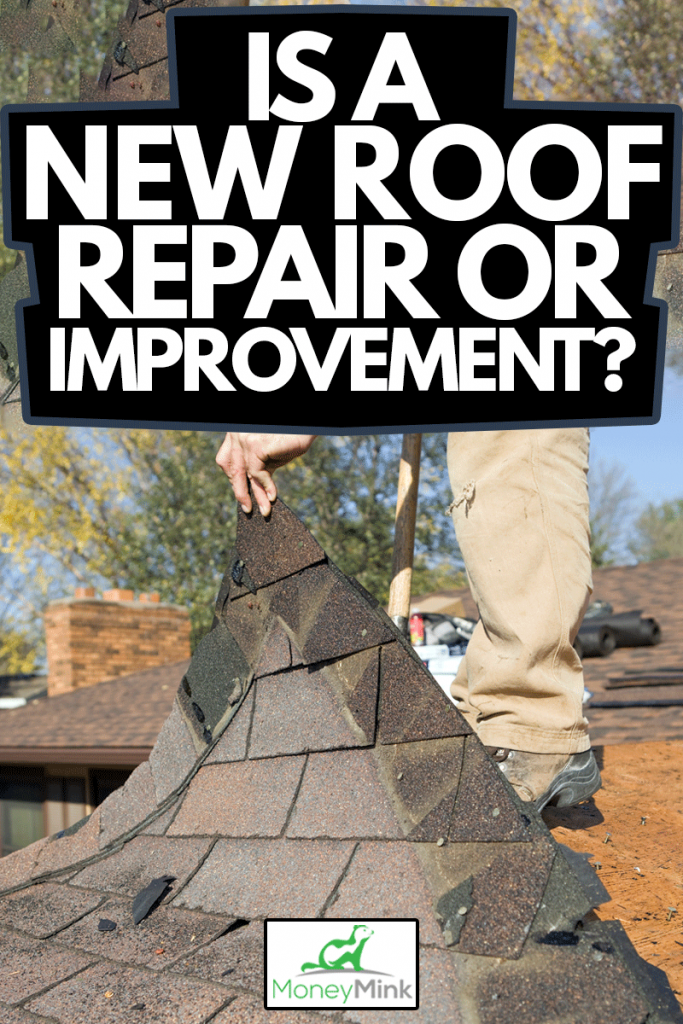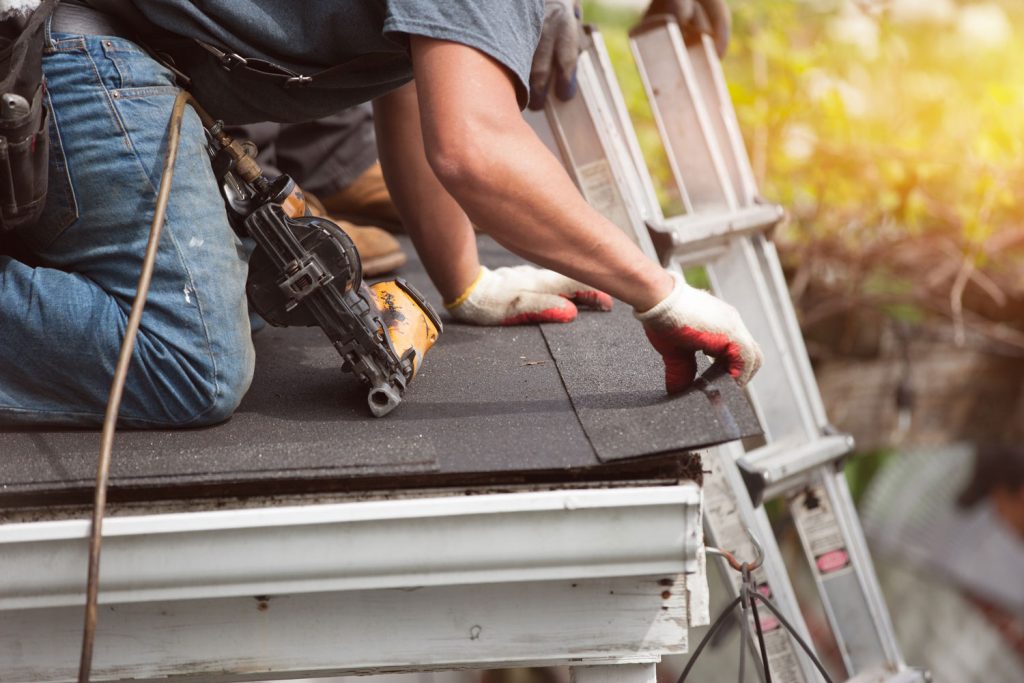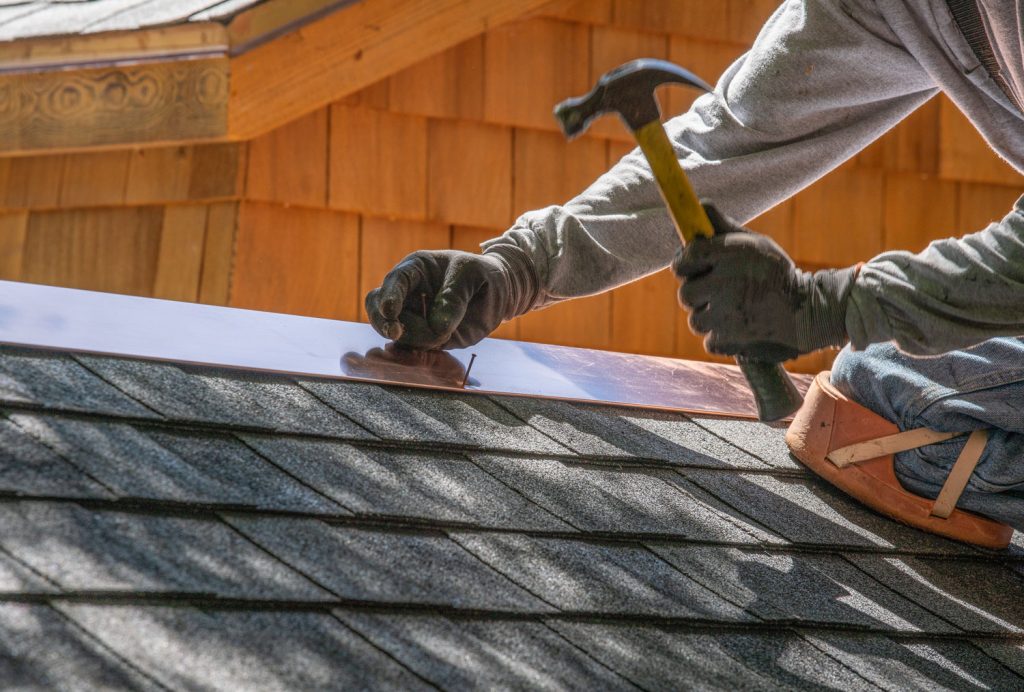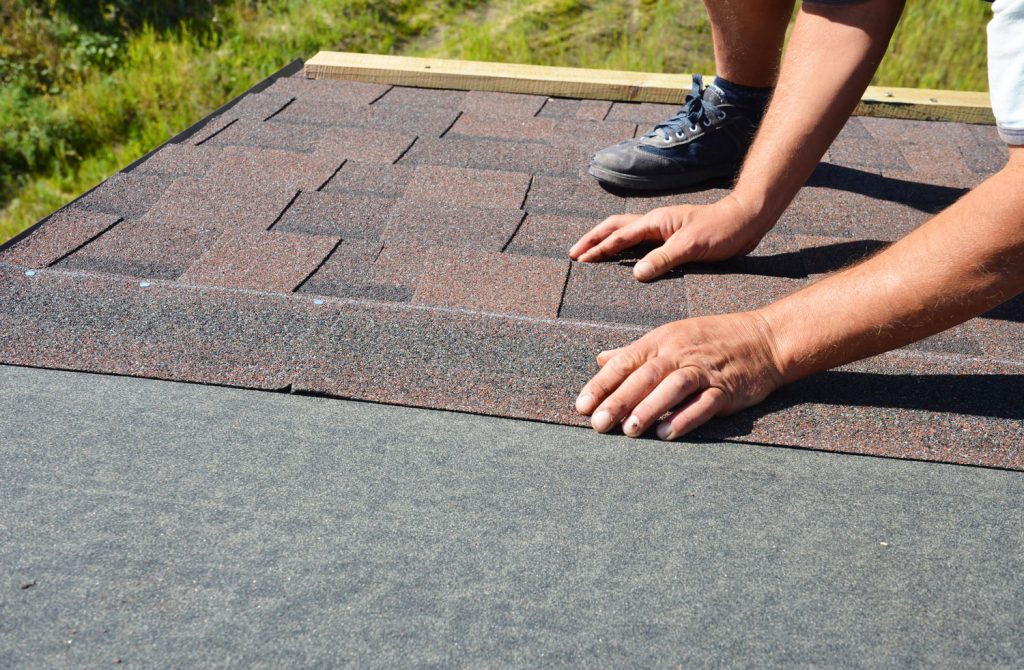If you are trying to determine whether a new roof is considered a repair or an improvement for tax purposes, then you are in the right place. There is a difference between the two, and it is important to understand them before investing. We did the research on the subject to bring you the answer.
Replacing an entire roof with a new one is considered an improvement. The improvement must be capitalized and depreciated. The difference is that a repair is considered maintenance, such as patching roof leaks or replacing shingles.
As a homeowner, it is important to know the difference between a repair and a capital improvement for tax purposes. This article will take a closer look at why a roof is considered a capital improvement on your home. In addition, we will discuss other frequently asked tax questions about replacing a roof on your home, so keep reading!

Is A New Roof A Repair Or Improvement?

Replacing a roof is considered an improvement since it impacts the value of your home. However, in this case, you must treat it as a capital expense and depreciate it.
If you have had a roof leak, for example, then that would be considered a repair since there has been damage to a portion of your roof that needs to be fixed. In this case, a roof leak would not be considered a capital expense, and the cost of the repairs would be considered maintenance.
It may make more sense to repair your roof rather than replace it in many cases. This is because you do not have to worry about depreciation or capitalizing the expense.
However, the problem with roof repairs is that they are not permanent solutions to fix your roofing issues. A new roof may be a better solution, but it will cost you more up front.
The most significant benefit of replacing a roof on your home is protecting it from the elements. In addition, a new roof offers better insulation which is critical for keeping your home cool during the summer and warm during the winter months.
Not only will you save money on energy costs but you will also increase the value of your home because it is protected against water damage.

What is considered a home improvement?
Home improvements are considered substantial changes to your home that make it more valuable.
That means that every time you do work on your home, there is a chance that the expense is either an improvement or repair.
It's important to remember that you must capitalize expenditures related to building or improving your home.
If this type of expenditure is not expected to last more than one year, it is considered a repair for tax purposes. But if it will last longer than one year, you must capitalize on this expense and depreciate the cost of the improvement.
It's also important to remember that improvements are only capitalized on the amount of your home they improve. That means that if you put new fencing around your yard, only the portion of the fence by your home will be considered an improvement.
Many homeowners are unclear about what expenditures qualify for a deduction on their taxes. That's why it is essential to consult with an experienced professional before deciding on repairing or improving your home.
Should a new roof be capitalized or expensed?
As stated above, whenever you make a home improvement on your house, it is considered an improvement or repair. A roof replacement that increases the value of your home must be capitalized and depreciated over many years.
However, if you repair your roof because of damage to your shingles or leaks, this expense is classified as a repair and is expensed.
Are roof repairs tax deductible?
If you are making a roof repair that consists of fixing deteriorated or broken parts of the roof, then a certain percentage is tax deductible. How much you can deduct depends on your state and the repair you did.
In some cases, repairing your roof may be the best way to keep from spending money on improving it. This is because a new roof can cost several thousands of dollars depending on the size of your roof.
And remember, if it is determined that the roofing repairs are only temporary, they cannot be deducted for tax purposes.

Can you get a new roof on homeowners insurance?
A new roof is usually covered by homeowners insurance if the damage is done by a natural disaster or sudden accident. For example, if a tree falls on your roof, then you may be able to get reimbursed for the cost of a new roof.
However, if you are replacing an old roof with another type of material or shingles for any reason other than a natural disaster or accident, there is likely no reimbursement from insurance. This is because your house will not be more resistant to damage than before.
Another important thing to remember is that most insurance companies will only cover the cost of repairing the roof without any additional improvements or upgrades. So for an improvement to your roof, such as a new shingle type, you would have to pay for it out of pocket and then try to get reimbursed later.
How do I avoid paying a new roof deductible?
There are many cases where homeowners decide to replace their roofs due to leaks or wind damage. Unfortunately, most insurance companies require that you pay a deductible each time the roof is repaired, every ten years.
For example, if the new roof is $10,000 and your deductible is $1,500, then the insurance company will only cover $8,500 of the cost. Typically, it's tough to avoid paying a deductible set in stone with your insurance policy.
You may change your deductible to a lower cost, but it will increase your monthly insurance premium.
One thing not to do is to have a contractor waive the deductible costs. This type of practice is illegal in some states and could get you and the contractor in trouble. If a contractor offers this type of deal, it is better to find a different person to work with.
You may be able to contact your tax advisor to see if your roof replacement deductible is tax deductible. Sometimes a portion of a roof replacement deductible is tax deductible, saving you money after the calendar year is done.
Are there any situations where the entire new roof is tax deductible?
In some cases, homeowners can deduct the entire cost of their roof replacement or repair on their taxes. For example, churches or charitable organizations may deduct all of these types of expenses if it is related to the organization's mission.
Also, if you have a home office, you may expense a portion of the roof replacement. The amount that you can deduct for your home office may be limited depending on the size of the home.
An experienced tax advisor can help you determine if a portion or all of your roof replacement is tax deductible. They may also help you get more information about any possible additions that are not covered by insurance.

Should I repair or replace my roof?
Many homeowners ask themselves this question when they find a leaky roof or other damage. The choice typically comes down to how much it would cost you to repair your roof compared to replacing it.
For example, if you have a $10,000 leak in your roof and the average cost of repairing that is $3,500, it may be more financially beneficial to replace your roof. However, if the average life of a roof is 25 years, you are better off getting a new roof in this case.
On the other hand, if you have leaks in multiple places all over your roof and it will cost $8,500 per leak to repair, it would be cheaper to replace your roof.
Remember that you should always consult with a contractor before making any decisions about the condition of your roof. It is essential to get multiple opinions on the state of your roof and how it will be fixed or replaced.
Doing this could save you thousands of dollars down the line, especially if unexpected repairs need to happen.
Final Thoughts
![]()
When it comes to roof replacement, there are a lot of factors that you should consider before taking the next step. First, it's essential to get an expert's opinion on how your roof can be repaired or if a new one will give you better results later in life.
Make sure to ask about any possible tax benefits and find out what deductible you will have to pay when you replace your roof. This could help lower the costs if you write it off on your taxes later.
Before you go, be sure to check out these other guides:
Does Homeowners Insurance Cover Wood Siding?



